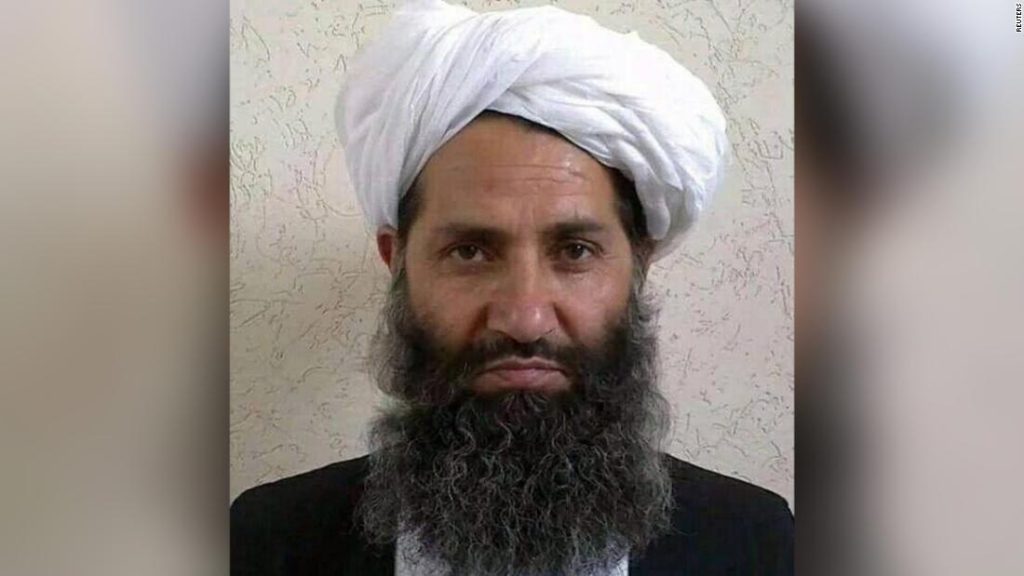The reclusive leader told the conference that Afghanistan “cannot develop without being independent,” according to the state-run Bakhtar News Agency.
“Thank God, we are now an independent country. (Foreigners) should not give us their orders, this is our system, we have our own decisions,” Akhundzada added.
The speed of the capture, just weeks after the start of the withdrawal of US forces, took the world by surprise and led to the dissolution of the foreign-backed government of Ashraf Ghani, which had fled the country.
Akhundzada made the remarks in an audio recording during a three-day religious gathering of 3,000 people – all male, according to state media. The meeting was not open to the media, but CNN heard a recording of Akhundzada’s speech.
A senior cleric from the Taliban’s founding generation, Akhundzada, was named as the leader of the Taliban in 2016 after the group’s former leader Mullah Akhtar Muhammad Mansour was killed in a US airstrike in Pakistan.
He held the position when the group announced its interim government in September.
Akhundzadeh ruled out involving previous administrations in forming any future government, although he said he “forgave them”.
“I have forgiven the oppressors of the former regime. I do not hold them accountable for their past actions. If someone causes trouble for them without committing new crimes, I will punish them. But forgiveness does not mean including them in the government,” Akhundzada said in the audio recording.
The message appeared to contradict statements made in recent months by other members of the Taliban leadership, who have expressed openness to a more inclusive government in order to gain international support.
The international community has repeatedly called on the Taliban to expand the ranks of their government and restore the rights of women and girls, who have been stripped of their rights since the group seized power, if they are to be officially recognized. The World Bank has frozen hundreds of millions of dollars in projects over the issue.
During an urgent meeting in Geneva on Friday, UN High Commissioner for Human Rights Michelle Bachelet warned that “women and girls in Afghanistan are experiencing the largest and fastest decline in the enjoyment of their rights in all areas in decades.”
Speaking to the clerics, Akhundzadeh emphasized his commitment to implementing Islamic law, the Islamic legal system derived from the Qur’an, while expressing opposition to “the way of life of non-believers.”
The Taliban’s strict interpretation of Sharia when it was last in power led to dozens of violent punishments, including stonings of alleged adulterers, public executions, and amputations.

“Beer buff. Devoted pop culture scholar. Coffee ninja. Evil zombie fan. Organizer.”




/cdn.vox-cdn.com/uploads/chorus_asset/file/25550621/voultar_snes2.jpg)


More Stories
Two children killed, 11 injured in stabbing attack at Taylor Swift dance party in UK, 17-year-old arrested
Fiber optic communications networks are being sabotaged – DW – 07/29/2024
Putin warns US against deploying long-range missiles in Germany | NATO